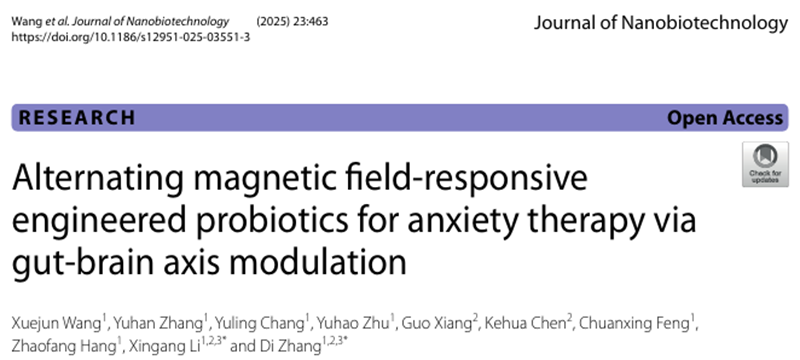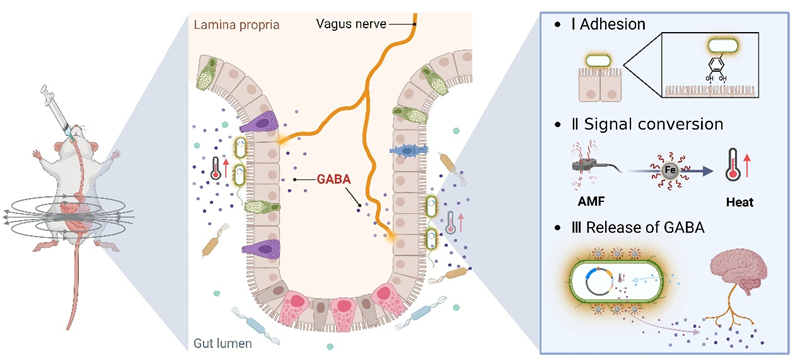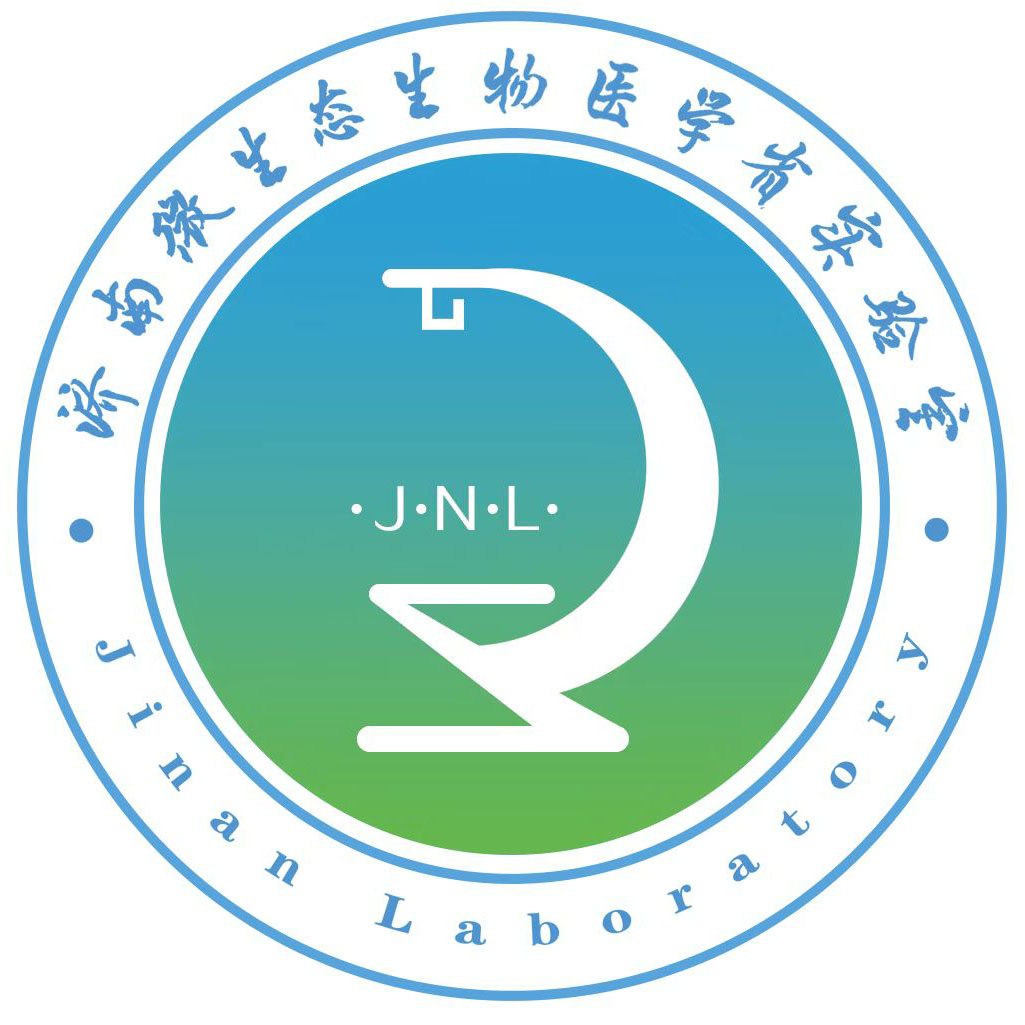Recently, Professor Li Xinguang, Deputy Director of the Jinan Microecological Biomedicine Shandong Laboratory, and Researcher Zhang Di's team constructed a type of engineered probiotic modified with nanomaterials, which can alleviate anxiety-like behaviour by regulating the gut-brain axis under the stimulation of an alternating magnetic field, providing a new non-invasive, remote control method for anxiety treatment. This study, titled ‘Alternating magnetic field-responsive engineered probiotics for anxiety therapy via gut-brain axis modulation,’ was published in the Journal of Nanobiotechnology (IF: 12.6, Chinese Academy of Sciences Zone 1).

Anxiety disorders affect over 300 million people annually, and severe anxiety disorders can lead to suicide, causing serious consequences for both individuals and society. Therefore, there is an urgent need for treatment methods to address anxiety disorders. As a key component of the nervous system, the vagus nerve's afferent nerves account for 80% of the vagus nerve, transmitting signals from various visceral organs to the brain, making it a potential target for anxiety disorder treatment interventions.
Increasing evidence suggests that the onset of neurological and psychiatric disorders is closely associated with gut microbiota dysbiosis. The gut-brain axis, a complex network of bidirectional communication and regulation between the gut and brain via neural, endocrine, and immune pathways, is closely linked to the onset and progression of anxiety disorders. The gastrointestinal vagus nerve afferent neurons constitute the primary and direct neural connection between the gut and brain and have long been considered the core of the gut-brain axis. The gastrointestinal vagus nerve afferent nerves have been shown to participate in regulating various higher brain functions, including emotions and anxiety, through the nucleus tractus solitarius. Gamma-aminobutyric acid (GABA) is a common inhibitory neurotransmitter with important regulatory effects on the central nervous system, alleviating tension and anxiety and improving sleep quality, and can be produced by gut microbiota. Additionally, the vagal afferent nerve terminals in the submucosal layer of the gastrointestinal tract express a large number of GABA receptors. Therefore, vagal afferent nerve inhibition mediated by gut bacteria can regulate anxiety-like behaviour.
Currently, engineered probiotics, due to their advantages in achieving efficient targeted delivery within the body, sustained and stable production of bioactive factors, and design flexibility, have been widely used in targeted drug delivery, including for cancer, gastrointestinal inflammation, and metabolic diseases. The modification of engineered bacteria with nanomaterials has promoted the development of multifunctional strains, enabling precise spatiotemporal control and enhancing bioavailability. Therefore, the multifunctionality of nanomaterial-modified engineered bacteria holds great potential for regulating the vagus nerve afferent nerves in the gastrointestinal tract.
In this study, the team designed a nanomaterial-assisted engineered probiotic system that controls the release of GABA under alternating magnetic field (AMF) stimulation, based on the regulation of gastrointestinal vagus nerve afferent nerves to achieve anxiolytic effects. The system consists of three modules: Escherichia coli Nissle 1917 (EcN) containing the thermosensitive plasmid pBV220-pRpL-GadABC, which can release GABA through temperature regulation; magnetic Fe₃O₄ nanoparticles, which convert magnetic signals into thermal signals, thereby inducing the controlled production and release of GABA under AMF stimulation; and a poly-NE layer, which protects EcN from environmental stress and enhances its mucosal adhesion. This engineered probiotic serves as a dual-functional live biotherapeutic agent, simultaneously regulating anxiety-related neural networks and maintaining gut microbiota homeostasis. This nanomaterial-assisted engineered bacterial system provides an effective and controllable method for regulating the gut-brain axis and offers a potential therapeutic strategy for mood disorders.

Research Insights
This study developed an engineered probiotic system responsive to alternating magnetic fields, enabling remote, non-invasive regulation of central nervous system function from the gut, opening new avenues for treating anxiety and other mental disorders. This strategy of achieving brain regulation through the gut not only provides insights for bacterial therapies for mental disorders but also offers important references for developing treatment methods for more gut-brain interaction-related diseases.
This study was jointly conducted by the Jinan Microecological Biomedicine Shandong Laboratory and Qilu Hospital of Shandong University. Wang Xuejun, an assistant researcher at the Jinan Microecological Biomedicine Shandong Laboratory, is the first author, with Professor Li Xinguang, deputy director, and Researcher Zhang Di, principal investigator, as corresponding authors. The Jinan Microecological Biomedicine Shandong Laboratory is the first completing unit. This research was supported by the Taishan Scholar Special Fund (tsqn202211283), the Shandong Provincial Natural Science Foundation (ZR2023QH322, ZR2019ZD33), the Jinan Microecological Biomedicine Shandong Laboratory Research Project (JNL-202203Q), the National Natural Science Foundation of China (82071512), and the Shandong Provincial Laboratory Project (SYS202202).





